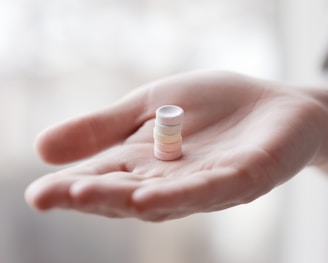Understanding Suboxone: A Path to Recovery and Well-being
Suboxone has become a cornerstone in the treatment of opioid addiction, providing a beacon of hope for individuals struggling with this chronic condition. As the opioid crisis continues to affect millions of lives worldwide, understanding the role and benefits of Suboxone is crucial for those seeking sustainable recovery. This article aims to provide comprehensive insights into Suboxone treatment, its importance, and how to find "Suboxone near me" to facilitate your journey towards a healthier, addiction-free life.
The Opioid Crisis: A Brief Overview
The opioid crisis has been a significant public health issue for over two decades. It began with the over-prescription of opioid painkillers in the late 1990s, leading to widespread misuse and addiction. Opioids, including prescription medications like oxycodone and hydrocodone, as well as illicit drugs such as heroin, have a high potential for dependence due to their powerful effects on the brain's reward system. The Centers for Disease Control and Prevention (CDC) reports that opioids were involved in nearly 70% of all drug overdose deaths in 2019.
What is Suboxone?
Suboxone is a medication specifically designed to treat opioid addiction. It is a combination of two active ingredients: buprenorphine and naloxone. Buprenorphine is a partial opioid agonist, which means it activates the opioid receptors in the brain but to a lesser extent than full agonists like heroin or prescription painkillers. This property helps reduce cravings and withdrawal symptoms without producing the intense high associated with other opioids. Naloxone is an opioid antagonist that blocks the effects of opioids, preventing misuse of the medication.
How Does Suboxone Work?
Suboxone works by binding to the same opioid receptors in the brain that are activated by other opioids. However, because buprenorphine is only a partial agonist, it produces a milder effect, helping to alleviate withdrawal symptoms and reduce cravings. Naloxone, on the other hand, acts as a deterrent to misuse. If Suboxone is injected, naloxone will block the opioid effects, causing withdrawal symptoms and discouraging abuse.
Benefits of Suboxone Treatment
Reduces Cravings and Withdrawal Symptoms: Suboxone helps manage the physical symptoms of opioid withdrawal, making it easier for individuals to abstain from drug use.
Lowers Risk of Overdose: By stabilizing opioid levels in the brain, Suboxone reduces the risk of overdose, which is particularly high during relapse.
Improves Quality of Life: Treatment with Suboxone can help individuals regain stability in their lives, allowing them to focus on recovery, work, and relationships.
Increases Treatment Retention: Studies have shown that individuals on Suboxone are more likely to stay in treatment compared to those not on medication-assisted treatment (MAT).
Finding Suboxone Near Me
When searching for "Suboxone near me," it's essential to find a reputable clinic or healthcare provider that specializes in addiction treatment. Here are some steps to help you locate the right treatment:
Search Online Directories: Websites like SAMHSA's (Substance Abuse and Mental Health Services Administration) treatment locator can help you find certified providers and clinics offering Suboxone treatment in your area.
Consult Your Primary Care Physician: Your doctor can provide referrals to reputable Suboxone providers and may also be able to prescribe Suboxone themselves if they are certified.
Local Health Departments: Many local health departments offer resources and information on addiction treatment services, including Suboxone.
Support Groups and Community Resources: Organizations like Narcotics Anonymous (NA) and other community support groups can provide recommendations for Suboxone treatment providers.
Telemedicine Options: In recent years, telemedicine has become an increasingly popular option for accessing Suboxone treatment. Many providers offer online consultations and prescriptions, allowing you to receive care from the comfort of your home.
What to Expect from Suboxone Treatment
When starting Suboxone treatment, it's important to understand what to expect. Here is a general outline of the treatment process:
Initial Assessment: Your healthcare provider will conduct a thorough assessment, including your medical history, substance use history, and current health status. This assessment helps determine the appropriate dosage and treatment plan.
Induction Phase: During the induction phase, you will begin taking Suboxone under the supervision of your healthcare provider. This phase typically occurs when you are experiencing mild to moderate withdrawal symptoms. Your provider will adjust the dosage as needed to alleviate symptoms and cravings.
Stabilization Phase: Once the appropriate dosage is established, you enter the stabilization phase. During this phase, you will continue to take Suboxone regularly, and your provider will monitor your progress and adjust the treatment plan as needed.
Maintenance Phase: The maintenance phase involves long-term use of Suboxone to support sustained recovery. The goal is to maintain stability, prevent relapse, and allow you to focus on rebuilding your life. The length of this phase varies depending on individual needs and progress.
Tapering Off: Some individuals may choose to taper off Suboxone eventually. This process should be done gradually and under the supervision of your healthcare provider to minimize withdrawal symptoms and prevent relapse.
The Role of Counseling and Support in Suboxone Treatment
While Suboxone is a powerful tool in opioid addiction treatment, it is most effective when combined with counseling and support. Behavioral therapies, such as cognitive-behavioral therapy (CBT) and contingency management, address the psychological aspects of addiction and help individuals develop coping strategies and skills for maintaining sobriety.
Support groups, such as Narcotics Anonymous (NA) or SMART Recovery, provide peer support and a sense of community, which are crucial for long-term recovery. Family therapy can also be beneficial, as it helps repair relationships and build a supportive home environment.
Addressing Stigma and Barriers to Treatment
Despite the proven effectiveness of Suboxone, stigma and misconceptions about medication-assisted treatment (MAT) remain significant barriers. Some individuals and healthcare providers believe that using medications like Suboxone is merely replacing one addiction with another. However, this view overlooks the substantial evidence showing that MAT saves lives and supports long-term recovery.
Education and advocacy are essential in combating stigma and encouraging more individuals to seek treatment. Healthcare providers, policymakers, and community leaders must work together to promote understanding and acceptance of MAT as a legitimate and effective treatment for opioid addiction.
Success Stories: Real-Life Experiences with Suboxone
Hearing from individuals who have successfully used Suboxone to overcome opioid addiction can be incredibly inspiring and motivating. Here are a few success stories:
John's Journey to Recovery: After struggling with heroin addiction for over a decade, John found hope through Suboxone treatment. With the support of his healthcare provider and participation in a local support group, John has been sober for five years and now helps others in their recovery journey.
Maria's Story: Maria was prescribed opioid painkillers following surgery and quickly became dependent on them. Realizing she needed help, she sought out a Suboxone clinic near her. With comprehensive treatment that included counseling and family support, Maria successfully tapered off Suboxone and has maintained her sobriety for three years.
David's Experience: David's addiction to prescription opioids led him to lose his job and strain his relationships. Suboxone treatment, combined with intensive outpatient therapy, helped him regain control of his life. David now advocates for MAT and works with local organizations to reduce stigma and increase access to treatment.
The Future of Suboxone and Opioid Addiction Treatment
The landscape of opioid addiction treatment is continually evolving, with ongoing research and advancements in medications and therapies. Here are some emerging trends and future directions in the field:
Extended-Release Formulations: Newer formulations of buprenorphine, such as monthly injections or implants, are being developed to improve adherence and reduce the risk of misuse.
Personalized Medicine: Advances in genetics and pharmacology may lead to more personalized approaches to addiction treatment, tailoring medications and dosages to individual needs.
Integrated Care Models: Combining primary care, mental health services, and addiction treatment in integrated care models can provide more comprehensive and holistic support for individuals in recovery.
Increased Access to Telemedicine: The expansion of telemedicine services has the potential to increase access to Suboxone treatment, particularly in rural and underserved areas.
Conclusion
Suboxone is a life-changing medication for many individuals struggling with opioid addiction. By reducing cravings and withdrawal symptoms, it provides a pathway to recovery and a chance for a healthier, more stable life. Finding "Suboxone near me" is the first step towards accessing this crucial treatment. Combining Suboxone with counseling, support, and comprehensive care maximizes its effectiveness and supports long-term sobriety.
As we continue to address the opioid crisis, it's essential to promote understanding and acceptance of medication-assisted treatment. By reducing stigma and increasing access to Suboxone and other evidence-based treatments, we can help more individuals achieve lasting recovery and improve their overall well-being.
If you or someone you know is struggling with opioid addiction, don't hesitate to seek help. Resources and treatment options are available, and recovery is possible. Remember, the journey to sobriety begins with a single step, and finding Suboxone treatment near you could be the key to reclaiming your life.
Additional Resources for Suboxone Treatment
For those seeking more information on Suboxone and opioid addiction treatment, the following resources can provide valuable insights and support:
Substance Abuse and Mental Health Services Administration (SAMHSA): SAMHSA offers a wealth of information on addiction treatment, including a


